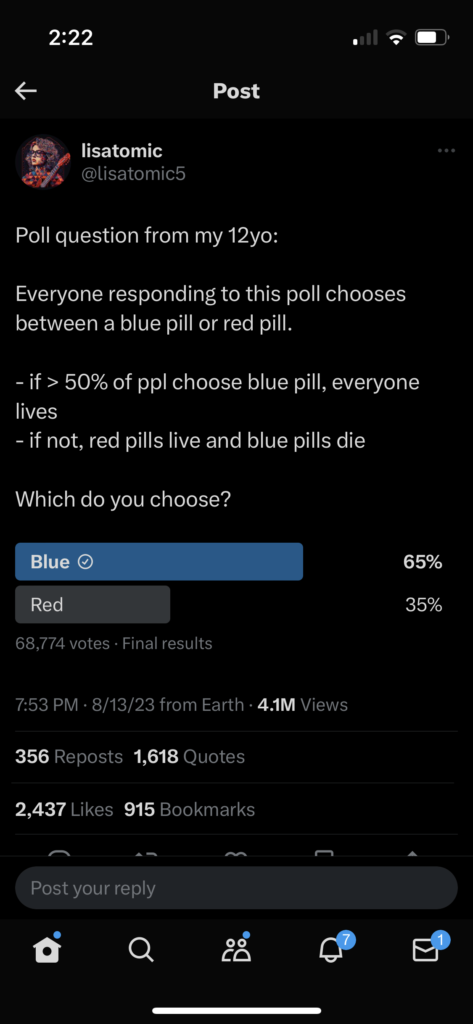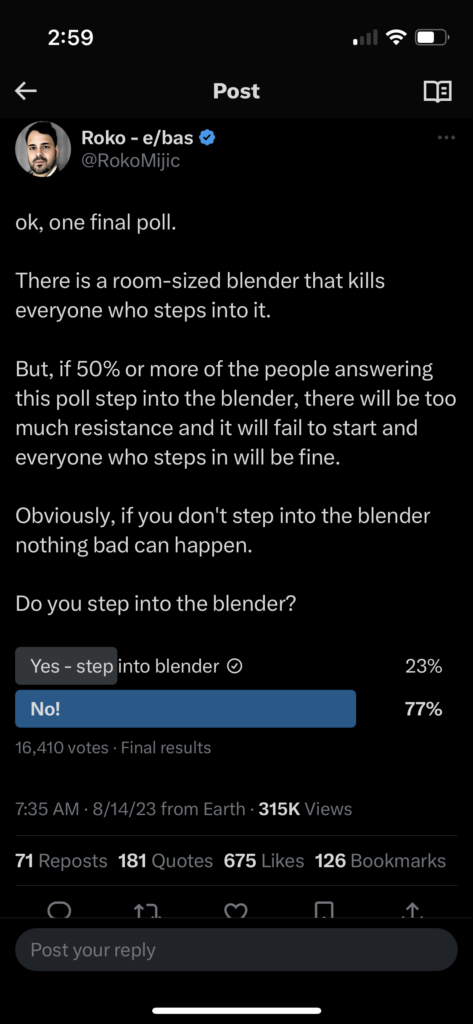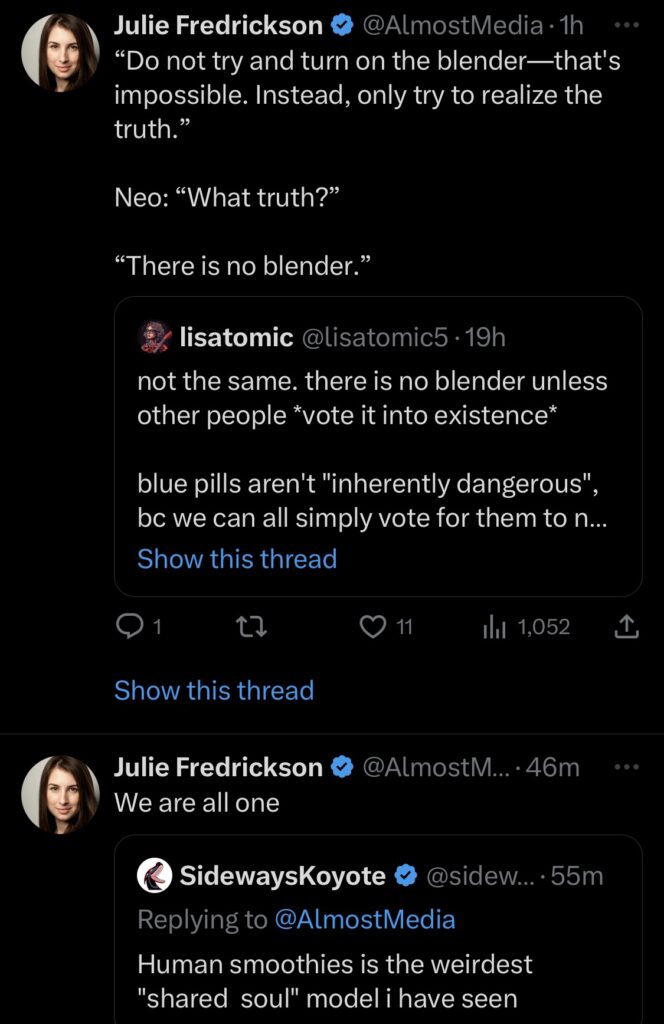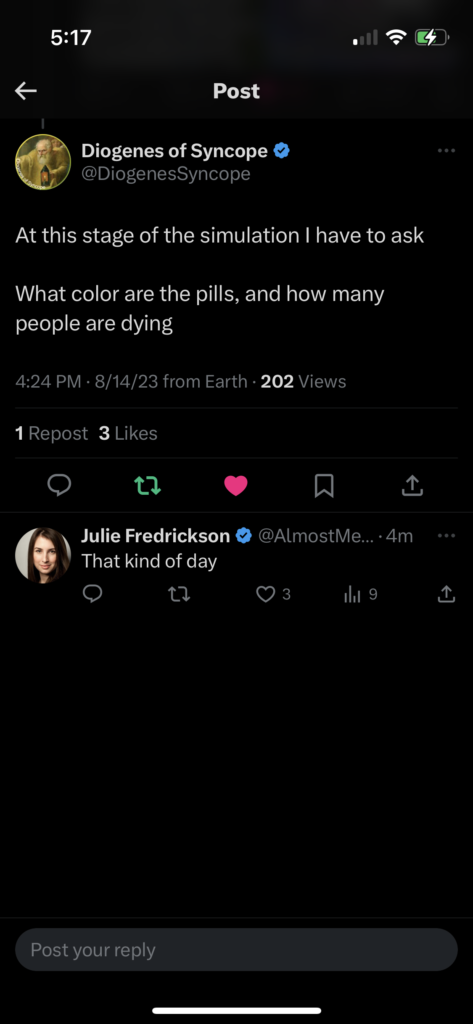We are deep in the dog days of summer. I ran a fever and found myself dead asleep till nearly 1pm as my body valiantly struggled to process deluge of stress hormones I’d let pile up. I missed recording a podcast but the fever broke. I’ll catch up.
Meanwhile, on the website formerly known as Twitter, an epic battle of meaning was waged. The group mind egregore known as “this particular corner of Twitter” asked you to take a pill and/or hit a button.

And thousands of jacked in minds, from neu-fascism-IQers-must-speciate-eugenicists & red-rose transhumanist-luxury-space-communists to normie-Dad-banger-poasters, all raced to decide the meaning of the ultimate symbol.
Who lives and who dies when we can no longer coordinate exclusively within our ingroup?
Absolute fucking chaos. The collective of our shared internet went into a frenzy of consensus making.
Would you walk away from Omelas? Or would you save yourself? Would the gods of rationalism betray your soul with the knowledge that the good of the one can and does outweigh the good of the many?

Are you willing to step into a blender to save the normies? No? Yes? Fuck! Roko (of Basilik fame) redefined the problem space.
And then because we all must troll, we all stepped into a blender for the good of our species. Well, I wanted to annoy Roko. So I said I would when I voted that I wouldn’t. Because all serious social question can and should be trolled.

In the space of a day, we all leapt into the proverbial blender to save the naive, the kind, and the fucking stupid. It’s what Spock have done for us. Pro-social is the logical choice. Or is it? Is it better to be red than dead? None of us know.
I personally hope we all continue to create an eternal refinement culture of love and hope across all cycles of time to come.
I found it to be a privilege to be a member of the hive mind. We are all the alignment. Our consensus efforts inside the plutocrats toy is more likely to bring about the singularity than almost any other activity I can imagine.
It is a privilege to be in the egregore. My smol sensemaker syncretic smooth brain being hooked up into the wider hive for “Red vs Blue Walk Away From Omelas Boogaloo” is quite literally divine. To retweet each others bangers is to see the face of God. Just try and remember the truth. There is no blender.



